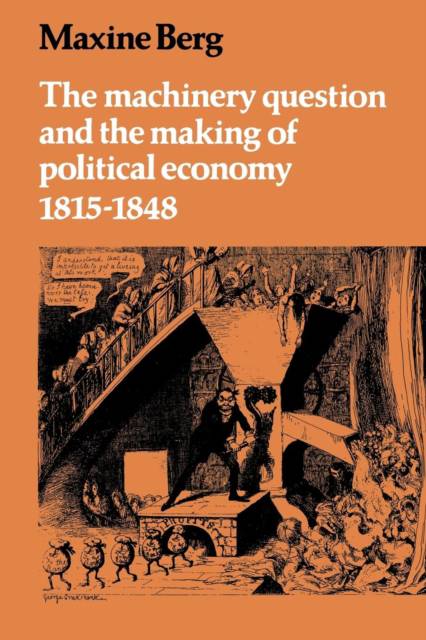
Door een staking bij bpost kan je online bestelling op dit moment iets langer onderweg zijn dan voorzien. Dringend iets nodig? Onze winkels ontvangen jou met open armen!
- Afhalen na 1 uur in een winkel met voorraad
- Gratis thuislevering in België vanaf € 30
- Ruim aanbod met 7 miljoen producten
Door een staking bij bpost kan je online bestelling op dit moment iets langer onderweg zijn dan voorzien. Dringend iets nodig? Onze winkels ontvangen jou met open armen!
- Afhalen na 1 uur in een winkel met voorraad
- Gratis thuislevering in België vanaf € 30
- Ruim aanbod met 7 miljoen producten
Zoeken
€ 90,95
+ 181 punten
Omschrijving
For those who lived through it, Britain's Industrial Revolution was experienced as the Machinery Question. It was far from clear to contemporaries whether the first forms of mechanized factory production heralded an inevitable economic revolution, or were but one course among several which might be modified or eventually rejected altogether, Opinion about the necessity or beneficence of machines was profoundly divided at all levels of society; the often acrimonious debate that arose reverberated through economic, political, cultural and intellectual life. Crucially important for the development of this debate, because it was the source of the very terms of discussion, was the new discipline of Political Economy. The major contention of this book is that the Machinery Question was also the making of Political Economy. Dr Berg argues that technical change was one of the foremost theoretical concerns of Ricardo and his successors, and the foundation for their distinctly optimistic view of the future. She shows how the Machinery Question fostered the social conditions in which the status of Political Economy as a discipline was established, and concludes that by the 1840s the divisions over machinery were firmly embedded in the great rival creeds of the future, liberalism and socialism. The book will interest teachers and students of British social and economic history, the history of economic thought and the history of science and technology.
Specificaties
Betrokkenen
- Auteur(s):
- Uitgeverij:
Inhoud
- Aantal bladzijden:
- 392
- Taal:
- Engels
Eigenschappen
- Productcode (EAN):
- 9780521287593
- Verschijningsdatum:
- 31/03/1982
- Uitvoering:
- Paperback
- Formaat:
- Trade paperback (VS)
- Afmetingen:
- 152 mm x 229 mm
- Gewicht:
- 571 g

Alleen bij Standaard Boekhandel
+ 181 punten op je klantenkaart van Standaard Boekhandel
Beoordelingen
We publiceren alleen reviews die voldoen aan de voorwaarden voor reviews. Bekijk onze voorwaarden voor reviews.











